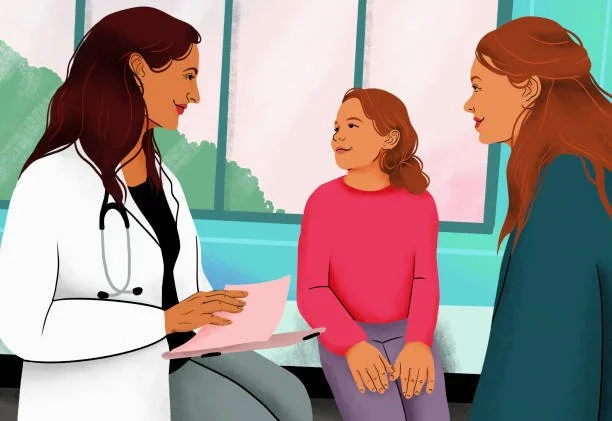
Mental Health Policies/Laws
Image by Pete Linforth from Pixabay
Protecting our youth and advocating for mental health resources
Across the U.S., mental health policies vary by state when it comes to minor consent. California takes a more progressive approach when it comes to minor consent for mental health services. Under California law, minors ages 12 and older have the right to consent to outpatient mental health counseling services. Parents may be optionally involved in treatment sessions, but if a minor chooses not to share treatment information with parents, then therapists must respect that decision (California School-Based Health Alliance, 2021).
Regardless of state, mental health policy experts and state legislatures universally agree that access to services are crucial to addressing the youth mental health crisis. The privacy safeguards that are discussed in the sections below ensure that minors receiving mental health treatment have control over their sensitive health data while allowing therapists the necessary discretion to act when safety concerns or imminent threats arise.
Image courtesy of Zimmytws at iStock.
Image courtesy of Covered California.
Medicaid and the Children’s Health Insurance Program (CHIP) provide basic mental health services
All California Health Plans must cover youth mental health
This program covers basic mental health services and counseling that includes diagnosis, prevention and treatment for kids, teens and expectant mothers. Coverage extends to in-person or telehealth visits (InsureKidsNow, n.d.).
According to Covered California (2025), California’s Mental Health Parity Act requires that health plans cover certain mental health conditions, which include:
Major depressive disorders
Autism or pervasive developmental disorders
Bipolar disorder
Panic disorder
Schizophrenia or schizoaffective disorders
Obsessive compulsive disorder
Eating disorders like anorexia nervosa or bulimia nervosa
Serious emotional disturbances for children under the age of 18
SB 221 also mandates that a follow-up appointment be provided within 10 days of the original mental health service appointment.

Privacy and Confidentiality
Image by Rabbit_1990 from Adobe stock images
-
The Health Insurance Portability and Accountability Act (HIPAA) of 1996 safeguards the privacy of PHI in a patient’s medical record. The Privacy Rule offers additional protections for mental health cases. Psychotherapy notes are considered to be personal notes of reflection by the therapist and are not used for treatment, payment or healthcare operations. Therefore, these notes remain separate from the medical record and cannot be disclosed unless there is consent by the patient or unless the therapist feels there is imminent harm.
Therapists can, however, release these notes to parents if an adolescent does not object (U.S. Department of Health and Human Services Office for Civil Rights, n.d.). If state laws have stricter privacy protections than the Privacy Rule, then state laws take precedence.
-
The Family Education Rights and Privacy Act (FERPA) of 1974 protects the privacy of personal health information that is contained in a student’s educational record. The law covers any “educational agencies or institutions” that act on behalf of the educational agency. FERPA does not allow the release of mental health records to other healthcare providers except when the minor is in imminent harm (Pacific Southwest Mental Health Technology Transfer Network, n.d.).
According to the California School-Based Health Alliance (2021), the information that minors ages 12 and over disclose to a school counselor as part of a counseling session is not considered part of the educational record and can be disclosed only if the student agrees to it or if there is threat of imminent harm. Likewise, schools cannot mandate that students receive permission before receiving mental health counseling services.
If the counseling session is part of the educational record, then parents do have a right to review the information upon request.
-
The 21st Century Cures Act is a crucial law that addresses issues related to access and confidentiality within the electronic health record (EHR), especially with regards to mental health. The law strikes a balance between transparency and patient autonomy.
The HIPAA Privacy Rule protections that govern PHI protection also apply here. Psychotherapy notes that do not result in billing or communications are exempt from the medical record .
According to the Academy of Child and Adolescent Psychiatry, where the law differs is in its mandate that adolescents in treatment receive access to their own medical records.
Since parents are allowed to review the minor’s medical record, AACP advises mental health providers to leave therapist notes out of the medical record to maintain the confidentiality of the minor’s treatment session (AACP Health Information Technology Committee, 2021).
-
California’s Confidentiality of Medical Information Act (CMIA) is a more stringent privacy law than HIPAA, specifying who can release confidential medical information and under what circumstances for California residents. It requires explicit consent from the patient before a health care provider, health plan or contractor can disclose PHI to a requestor (Consumer Federation of California, n.d.).
In 2022, Assembly Bill 2089 expanded the protections of CMIA to include medical mental health information that is collected through mobile health apps and on websites (Blank Rome, LLP, 2022). Essentially, any business that offers mental health digital services is now subject to the provisions in this law.
-
California Senate Bill 326 (SB 326), also known as the Behavioral Health Services Act, was approved by Governor Newsom in 2023 and passed by voters in March 2024. SB 326 replaces the Mental Health Services Act of 2004.
This bill introduces targeted funding for youth and young adults most at risk for mental health conditions. It also aims to promote equitable access to mental health resources. SB 326 also advocates for early interventions and prioritizes care for those with serious mental illnesses (Davalos & Ramos-Yamamoto, 2024).
Promising Legislations and Laws
-
California SB 531: Student Mental Health Education
California State Senator Susan Rubio introduced Senate Bill 531 (SB531) to expand mental health education to all students in grades 1 to 12. Currently, mental health awareness is part of the health education curriculum of 7th to 12th graders. The bill is supported by several child advocacy groups, including its co-sponsors, the California Academy of Child and Adolescent Psychiatry and the California Alliance of Child and Family Services (National Center for Youth Law, 2025).
-
California AB 665: Minor Consent for Mental Health Care
California Assembly Bill 665 addresses an issue with an existing law that limited access to mental health services due to a “mature enough” clause. Essentially, minors could not seek mental health care unless a provider deemed them mature enough to seek outpatient mental health services. AB 665 removes that condition, allowing minors ages 12 and above to independently consent to non-specialty mental health services on an outpatient basis. California Governor Newsom signed SB 665 into law in November 2023 and the law went into effect on July 1, 2024 (National Center for Youth Law, 2025).
-
Senate Resolution 769 (S.R. 769)
Senate Resolution 769 (S.R. 769) was introduced by California Senator Alex Padilla on July 24, 2024 and agreed to on same day. S.R. 769 recognized the youth mental health crisis unfolding in the U.S. and sought improved training for educators to support adolescents at risk for mental health challenges. The resolution also pushed for early interventions and crisis response strategies in public schools. S.R. 769 identified the need for mental health education to reduce stigmas associated with interventions (Worth, 2024). Youth played a role in shaping the key provisions of the resolution.
Policy Priorities for Youth Mental Health
References
AACP Health Information Technology Committee (2021, May). 21st century cures act: Introduction and FAQs for child and adolescent psychiatrists. The American Academy of Child and Adolescent Psychiatry. https://www.aacap.org/App_Themes/AACAP/docs/clinical_practice_center/business_of_practice/emr/21st-Century-Open-Notes-Intro-FAQs.pdf.
Blank Rome, LLP (2022, October 18). California expands the CMIA to regulate mental health digital services. https://www.blankrome.com/publications/california-expands-cmia-regulate-mental-health-digital-services.
California School-Based Health Alliance (2021, April 28). Behavioral health provider*. https://www.schoolhealthcenters.org/resources/sbhc-operations/student-records-consent-and-confidentiality/california-guide/faq/mental-health-provider-records-subject-to-ferpa/.
Consumer Federation of California (n.d.). The confidentiality of medical information act (CMIA). Consumer Federation of California Education Foundation. https://consumercal.org/about-cfc/cfc-education-foundation/cfceducation-foundationyour-medical-privacy-rights/confidentiality-of-medical-information-act/.
Covered California (2025, March 28). Mental health & therapy: What health insurance covers by law. https://www.coveredca.com/marketing-blog/mental-health-and-therapy-what-health-insurance-covers-by-law/.
Davalos, M., & Ramos-Yamamoto, A. (2024, October). California passed Prop. 1: What’s next for behavioral health system reform? California Budget & Policy Center. https://calbudgetcenter.org/resources/california-passed-prop-1-whats-next-for-behavioral-health-system-reform/.
Insure Kids Now (n.d.). Mental health. Centers for Medicare and Medicaid Services. https://www.insurekidsnow.gov/initiatives/mental-health.
National Center for Youth Law (2025). California SB 531: Student mental health education. https://youthlaw.org/laws-policy/california-sb-531-student-mental-health-education-2025.
National Center for Youth Law (2025, January 28): Minor consent for mental health care—Implementing Assembly Bill 665: Frequently asked questions (FAQs). https://youthlaw.org/resources/minor-consent-mental-health-care-implementing-assembly-bill-665.
Pacific Southwest Mental Health Technology Transfer Center Network (n.d.). HIPAA and FERPA laws: A school mental health navigation tool for Pacific Southwest states of Hawaii, California, Nevada, and Arizona. http://www.cars-rp.org/_MHTTC/docs/HIPAA-FERPA-Laws.pdf.
U.S. Department of Health Human Services Office for Civil Rights (n.d.). HIPAA privacy rule and sharing information related to mental health. https://www.hhs.gov/sites/default/files/hipaa-privacy-rule-and-sharing-info-related-to-mental-health.pdf.
Worth, D. (2024, August 20). Youth mental health takes center stage: Senate passes groundbreaking resolution. Active Minds. https://www.activeminds.org/blog/youth-mental-health-takes-center-stage-senate-passes-groundbreaking-resolution/.






